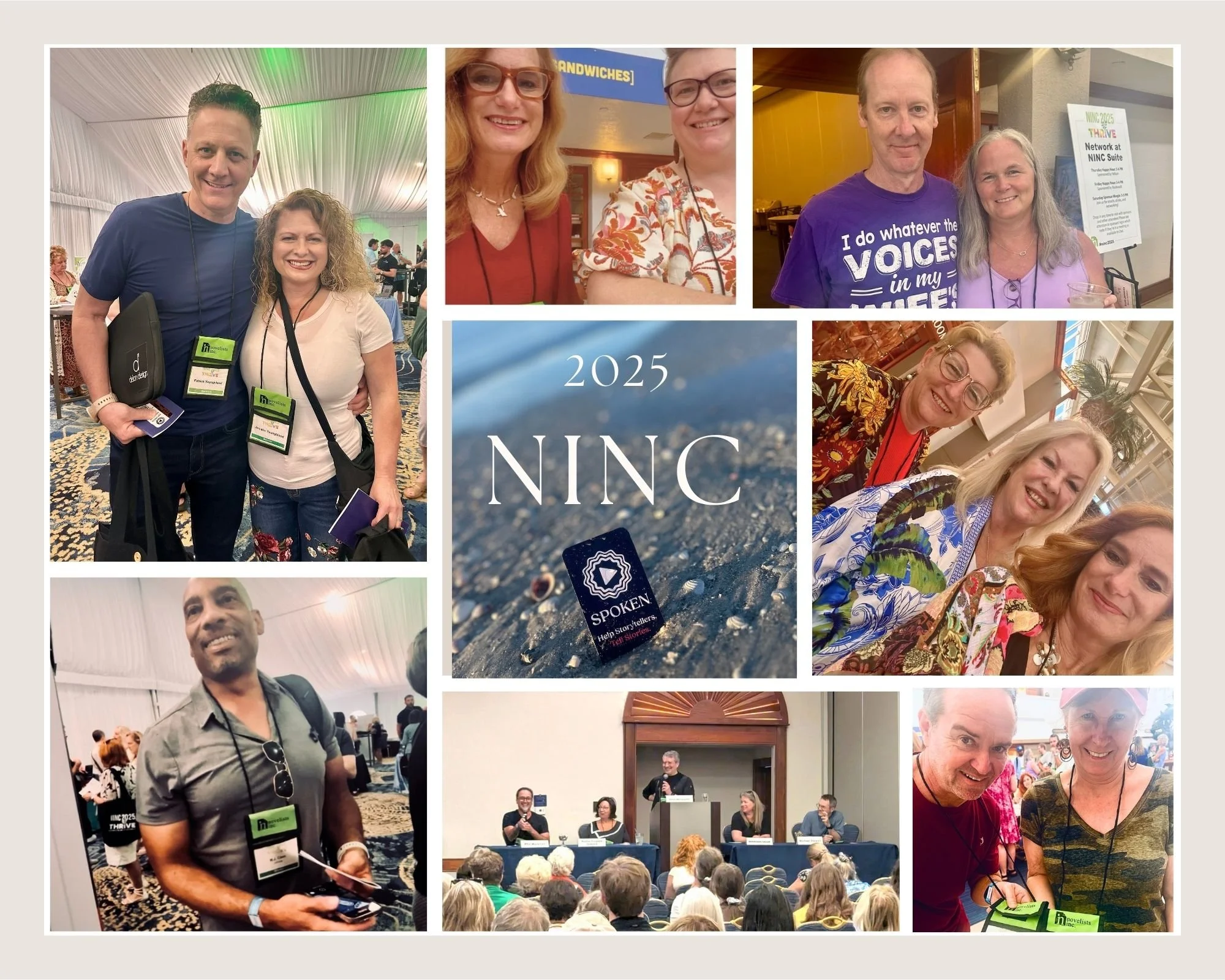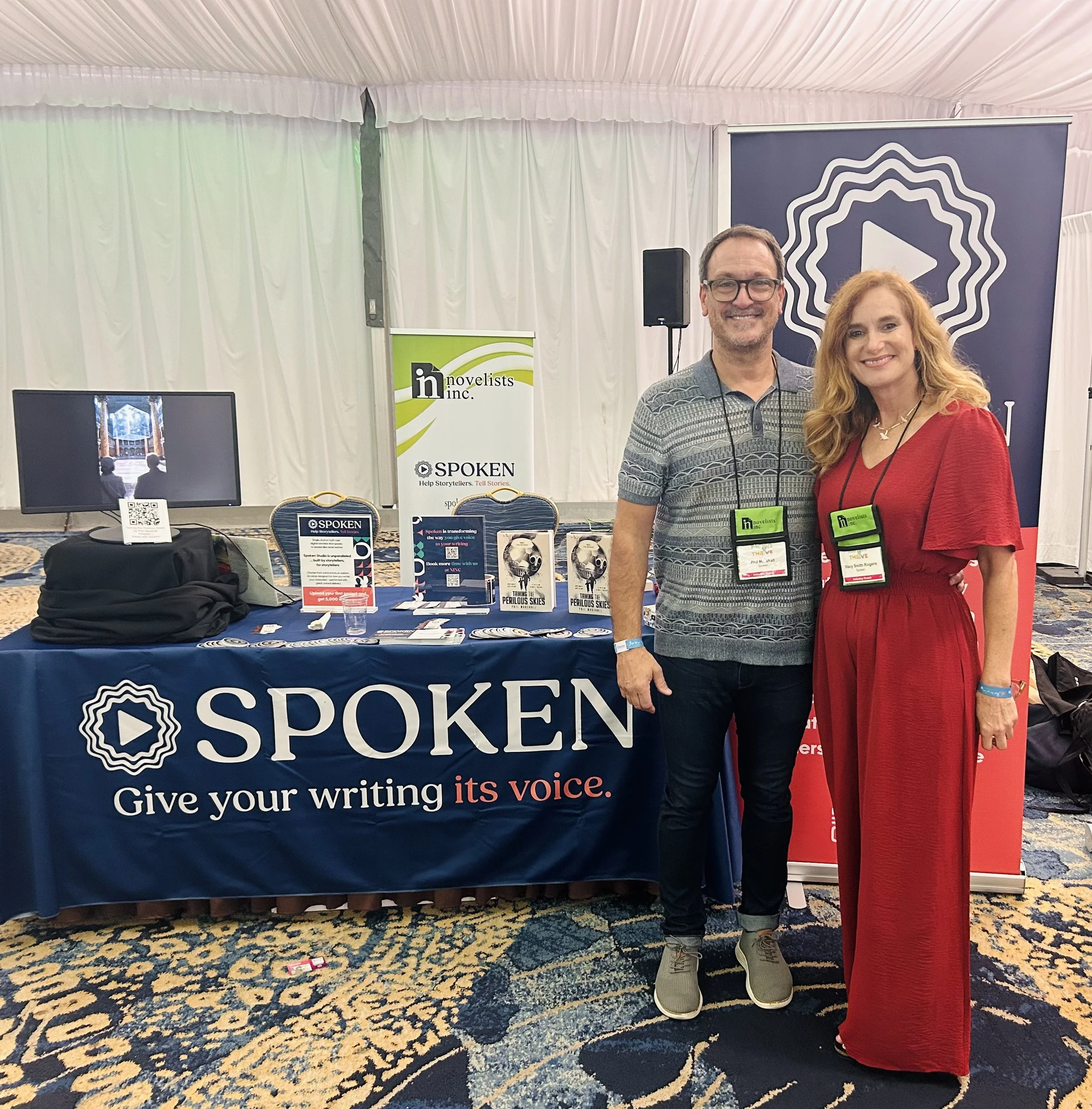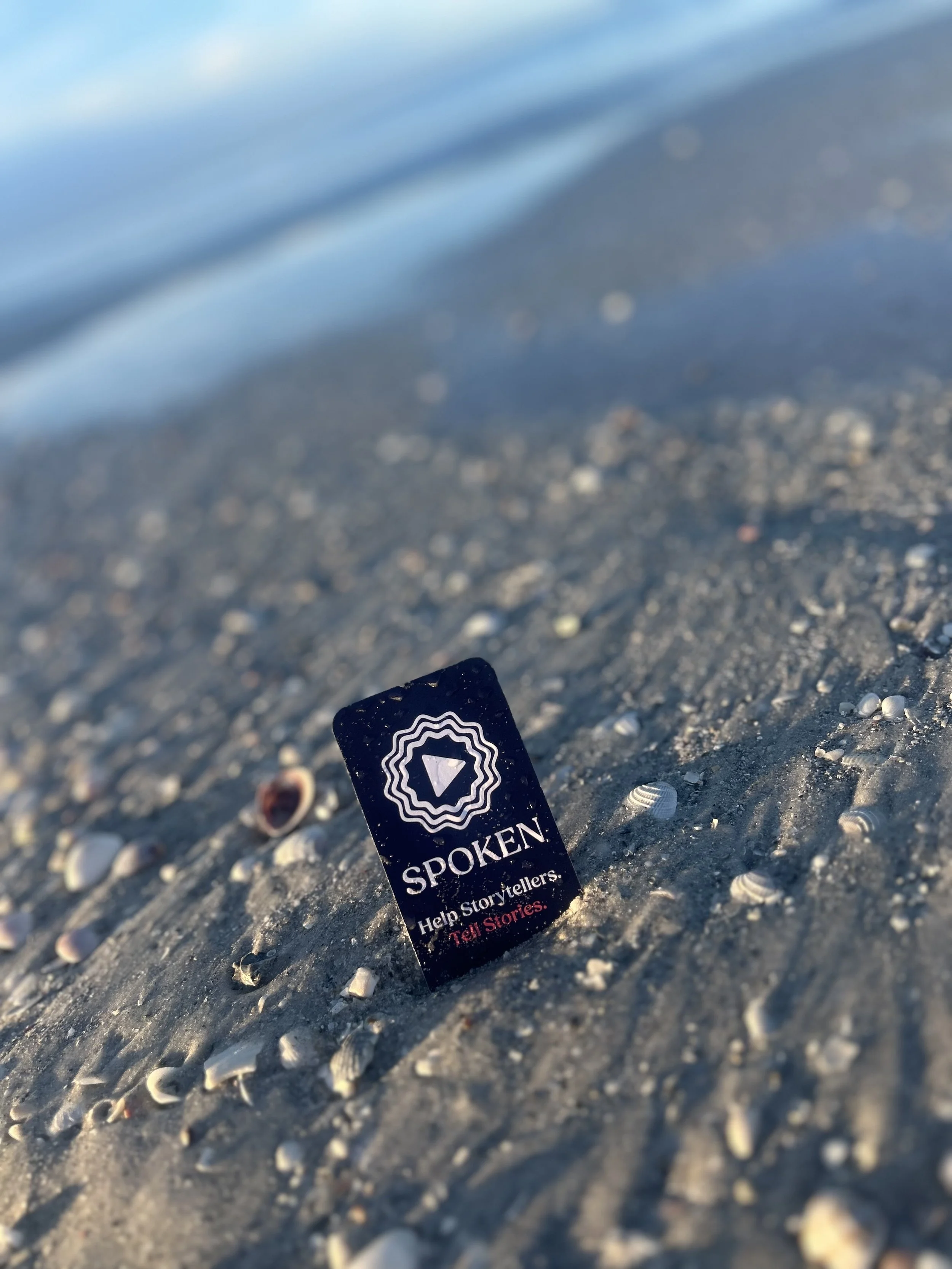Riding the NINC Wave
In every interesting story, there’s something that propels the plot forward – an event that challenges or inspires. As authors and readers, we all anticipate the energy, the excitement surrounding the shift, the pivotal moment. For the Spoken story, that pivotal moment is NOW. And we couldn’t be more excited to share it with you!
This wave of momentum has been building for the last six months. In March, we attended the Writer MBA conference, where curious (and often hesitant) authors were interested in dipping their toes into the waters of digital narration. As we focused on Studio improvements over the summer and launched our V1 publicly in August, we could feel the momentum tugging, propelling us forward. Spotify’s acceptance of Spoken-created work was one catalyst. Growing interest from industry partners was another. Our advocacy efforts for digital narration were paying off, and momentum was building.
The Tipping Point for Authors
Our experience at the Novelists, Inc. (NINC) conference proved that we are finally at that tipping point. Right there along the sandy shores of St. Petersburg, Florida, where hundreds of established independent authors gathered to learn how to propel their businesses forward, we received the confirmation …
They’re eager and ready to dive head-on into the digital narration waters with us. And we’re ready to welcome them!
Phil Marshall and Stacy Smith Rogers welcomed hundreds of authors into the Spoken story at Novelists, Inc.
We’ve been reflecting on what we experienced at NINC and processing on the feedback and valuable insights, including these five key takeaways:
Indie authors want to offer narrated versions of their work, but most can’t justify the cost.
Many who have invested in studio-recorded narrations (around $3,000–$5,000 each) are struggling to earn that money back. In fact, we estimate that only about 20 percent actually profit from their audiobooks.
Authors at NINC have an average of 50 backlist titles that have never been made into audio.
Operating at a financial loss to give readers what they crave just isn’t feasible. One author I spoke with is $10,000 in debt from audiobooks. With 100 books on her backlist, she simply can’t afford to continue narrating traditionally.
An author at the audiobook roundtable put it best:
“When I heard a sample of Spoken, it reminded me of digital photography. We all rejected it at the time, but do any of you still shoot on film?”
Beyond cost savings, authors are excited by what’s possible with Spoken.
While financial reasoning was a shared perspective, there was enthusiasm for what’s possible with Spoken, beyond the cost-savings. After listening to this short example and the first chapter of Taming the Perilous Skies, they didn’t say it was merely acceptable, tolerable, or listenable. They were genuinely excited and intrigued by the rich listener experience and features previously unattainable to them, including multi-voice, duet, and personal voice narration.
Authors still have concerns about unethical AI practices and care deeply about voice actors (and we do too).
Understanding how Spoken operates and that voice actors are compensated for their cloned voices has helped our authors feel more comfortable.
Equally enlightening were our connections with industry partners, influenced by several of our users bending their ears. Thank you. Your voices at these conferences have much greater impact than ours ever could.
With prospective integrations of Spoken Studio and the powerhouse reach of the businesses we’re partnering with, an undercurrent of broader acceptance and accessibility to widespread AI audiobook publishing is building.



